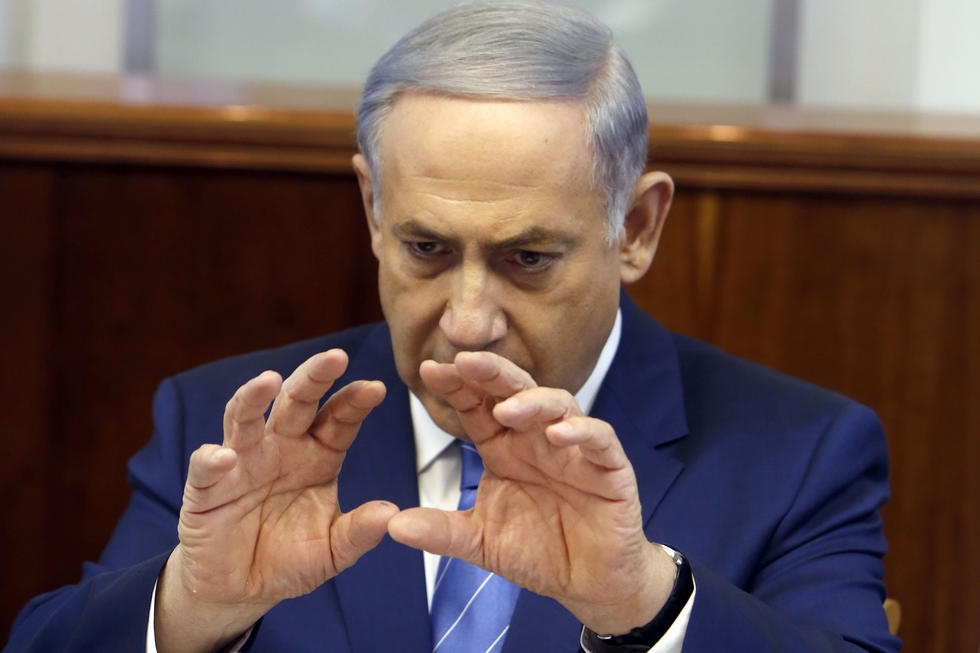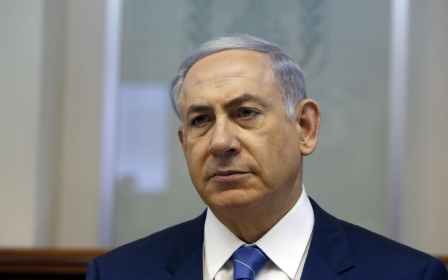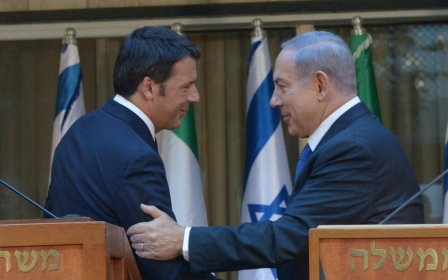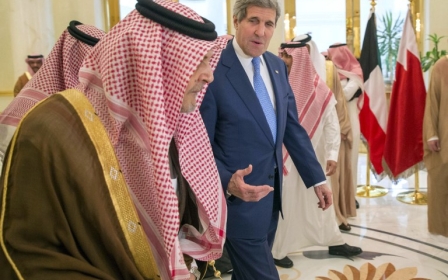Netanyahu warns US Jews of 'fatal flaws' in Iran nuclear deal

Israeli Prime Minister Benjamin Netanyahu addressed thousands of Jews living in the United States on Tuesday, warning that Washington’s nuclear deal with Iran would in fact accelerate the nation’s path to obtaining nuclear weapons.
The deal, finally signed between Iran and six world powers including the US in July, is intended to curb Iran’s ability to manufacture nuclear weapons in exchange for lifting grinding economic sanctions that have stifled economic growth for years.
Netanyahu, a long-time foe of Iran, has been vocally opposed to the deal, and on Tuesday spoke to American Jews via webcast from Israel to warn that the deal includes “fatal flaws”.
The webcast was jointly hosted by a number of organisations including American Friends of Likud, the party of which Netanyahu is chairman, and was streamed by at least 10,000 people, according to organisers.
It is estimated that some 5.3 million Jews live in the US, meaning it has a Jewish population just smaller than that of Israel.
Speaking at 13:00 local time (17:00 GMT), Netanyahu said the deal allows Iran to “have its yellowcake and eat it too,” referring to unenriched uranium.
“When you look around the Middle East you see chaos, savagery and barbarism,” he said, warning that the extra funding Iran-backed groups would receive after the lifting of sanctions would allow them to become “terrorist superpowers”.
He urged viewers to step up their opposition to the deal, reminding them that “the days when the Jewish people could not speak out for themselves are over”.
At the end of the speech Netanyahu thanked his hosts, saying he had spoken “on behalf of everyone in Israel”.
Though the speech deviated little from Netanyahu’s established rhetoric surrounding the agreement, he did signal a shift in policy when questioned twice about possible alternatives if the deal goes through.
Though he has previously said that the military option is on the table, Netanyahu on Thursday steered clear of such pronouncements, instead urging Congress to block the deal.
Netanyahu’s campaign received a boost shortly after he finished speaking when Ed Royce, Republican chairman of the House of Representatives Foreign Affairs Committee, introduced a bill that would see lawmakers vote to reject the deal.
However, though the speech aimed to bolster support among the Jewish community in the US, it was not welcomed by all US Jewish groups. Jewish Voice for Peace accused Netanyahu of delivering an “underwhelming rehash of hysteria and hypocrisy,” saying that Israel, not Iran, started the arms race the prime minister warned against.
At home, Netanyahu’s opposition to the deal has been divisive.
Though Israel’s political opposition is broadly united behind Netanyahu against the deal, the premier has found himself increasingly isolated. On Monday over 60 top former security officials in Israel signed a petition urging him to drop his opposition to the deal.
An editorial in the left-leaning Israeli daily Haaretz this week said Netanyahu’s decision to address the US Jewish community on Tuesday forced members to choose between their religious and their national sensibilities, thereby creating “a rift between American Jews and the administration”.
New MEE newsletter: Jerusalem Dispatch
Sign up to get the latest insights and analysis on Israel-Palestine, alongside Turkey Unpacked and other MEE newsletters
Middle East Eye delivers independent and unrivalled coverage and analysis of the Middle East, North Africa and beyond. To learn more about republishing this content and the associated fees, please fill out this form. More about MEE can be found here.




